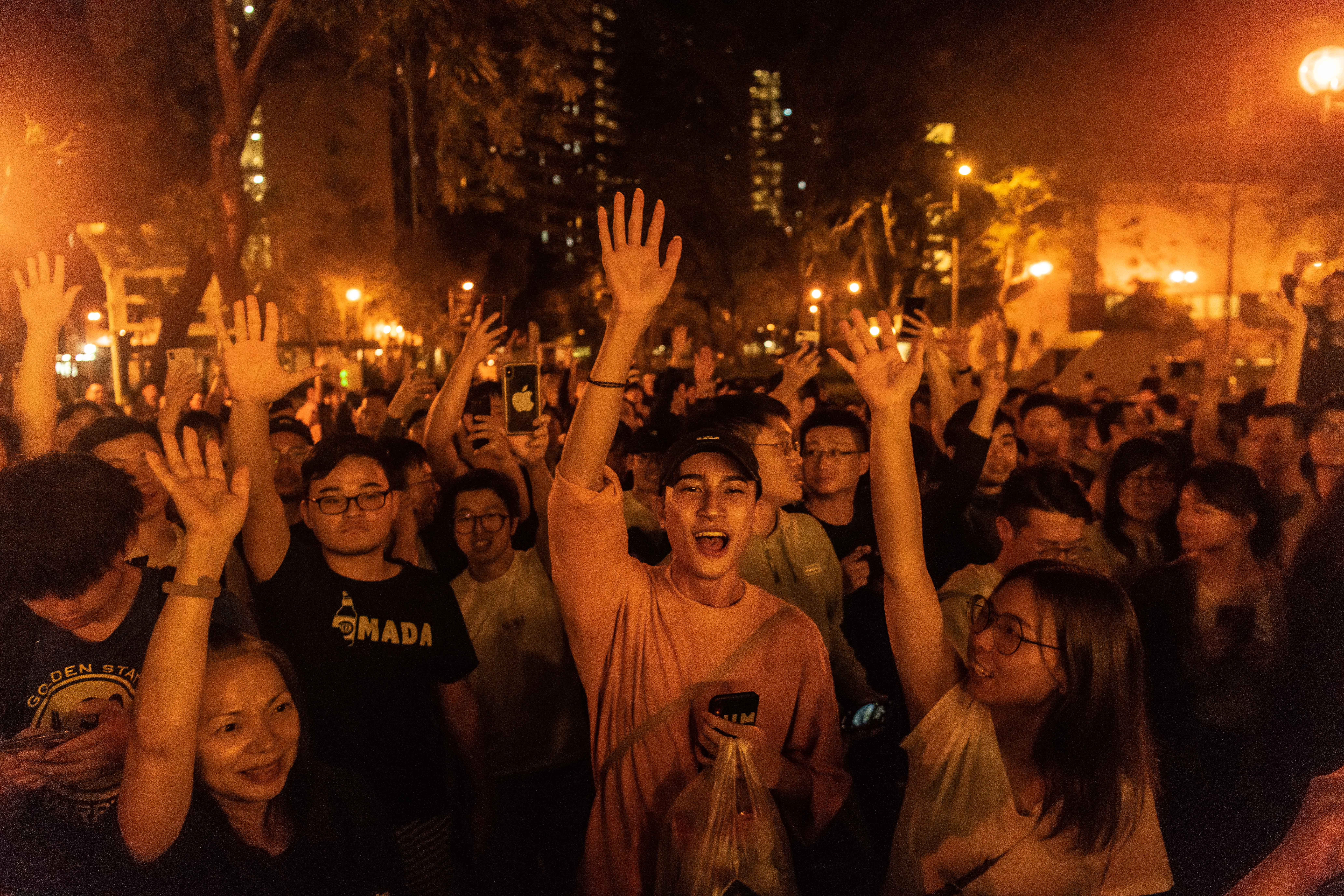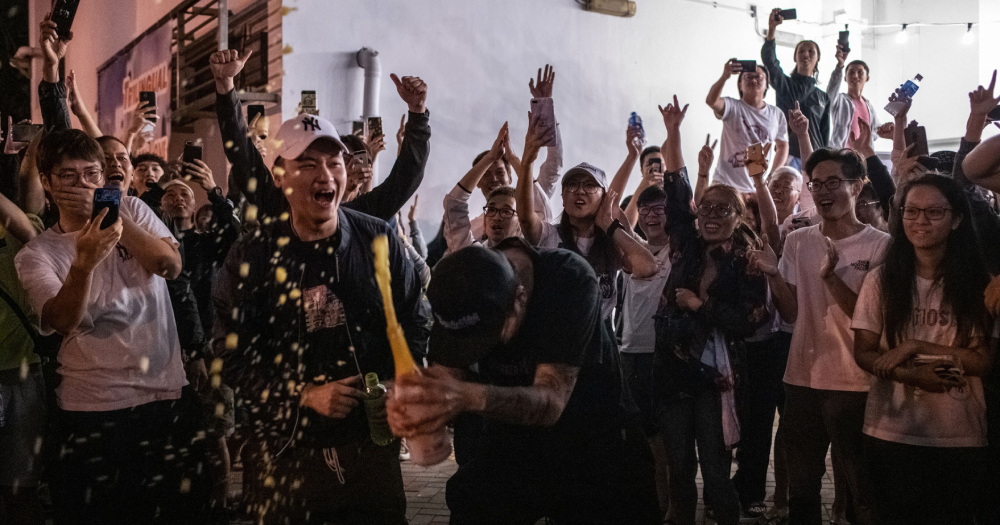Pro-democracy candidates came out supreme and roaring during the Hong Kong district elections on Sunday, Nov. 24, 2019.
Record voter turnout
The local elections in the Chinese Special Administrative Region (SAR) saw the largest voter turnout in history, with seven in 10 eligible voters from across age groups showing up in force to cast their ballots.
Some 17 out of all 18 districts eventually went to the pro-democracy camp.
Lack of coverage speaks volumes
However, as of 10:35pm on Monday, Nov. 25, Chinese state media, which are kept on tight reins by the Chinese Communist Party, have published only one article so far on the Sunday district elections -- 24 hours after it became clear that the anti-China candidates were winning big.
Titled, "HKSAR completes sixth-term district council election", the sole article on Chinese state-run media Xinhua simply gave a cursory account of the elections, and failed to mention that pro-democracy parties have successfully gained control of 17 out of 18 districts.
It also included Beijing's oft-repeated stance on the matter, saying "rioters, in concert with external forces, have continuously committed and escalated violence".
The pedestrian piece also said "rioters harassed patriotic candidates" -- a claim which has also been repeated by pro-establishment figures, who have complained of protesters vandalising offices and harassing pro-Beijing supporters, according to South China Morning Post.
The glaring lack of coverage on the elections is perhaps an indication that Beijing is still grappling with the event, and trying to formulate a suitable response that would cast itself in a good light.
Chinese state media had formerly tried to characterise the situation in Hong Kong as a "silent majority" supportive of China being cowed into submission to the extent of withholding its support, as a minority group of "rioters" destroyed Hong Kong.
Before election day, the city did see a series of violent attacks on election candidates, including pro-democracy and first-time candidates, such as activist Jimmy Sham, Jocelyn Chau and Jannelle Leung, as well as attacks on prominent pro-establishment lawmaker Junius Ho.
Beijing is now hard pressed to sensibly explain this resounding casting aside of pro-Beijing candidates by the majority of Hongkonger voters.
https://twitter.com/victorting7/status/1198841203300732928
Referendum on the protests
The election, therefore, is a referendum for the six-month protests by pro-democracy figures.
 Local residents celebrate as Junius Ho Kwan-yiu loses in District Council Elections, outside a polling station on November 25, 2019 in Hong Kong, China. (Photo by Billy H.C. Kwok/Getty Images)
Local residents celebrate as Junius Ho Kwan-yiu loses in District Council Elections, outside a polling station on November 25, 2019 in Hong Kong, China. (Photo by Billy H.C. Kwok/Getty Images)
Flash mob in central HK chanting ‘5 Demands, not one less’, after opposition’s stunning victory in local elections. pic.twitter.com/yEd9t7swjL
— Jonathan Head (@pakhead) November 25, 2019
This is an indication of the lack of pro-government supporters who were devoured by the anti-Beijing tide.
Beijing cautious in its remarks so far
China's Foreign Minister Wang Yi, speaking in Tokyo after a meeting with Japanese Prime Minister Shinzo Abe on Monday, Nov. 25, skirted the issue and avoided commenting directly on the election results, simply saying people should "wait for the final results", SCMP reported.
He also reiterated that Hong Kong is a part of China, and "any attempt to mess up Hong Kong" will not succeed.
Related articles:
Top image by PHILIP FONG/AFP via Getty Image
If you like what you read, follow us on Facebook, Instagram, Twitter and Telegram to get the latest updates.
